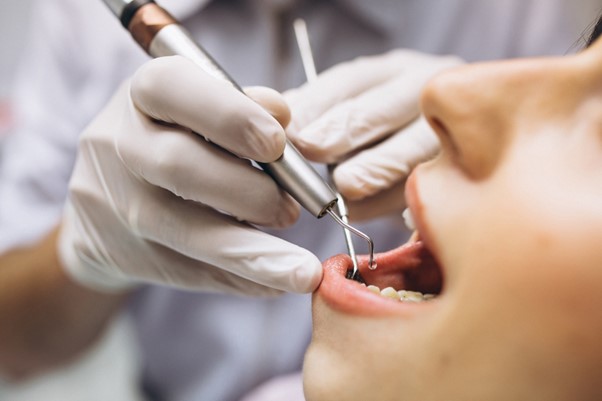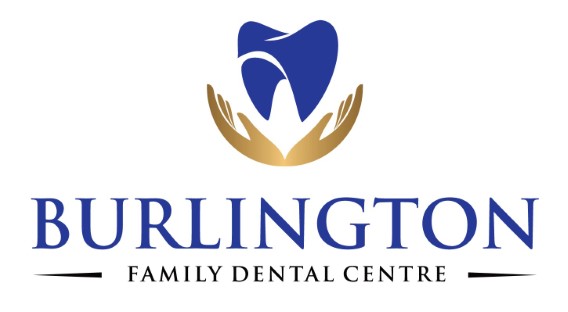Table of Contents
- What is a serious dental emergency?
- Why Do I Need an Emergency Dentist?
- What is the primary cause of most dental emergencies?
- What is the most common dental emergency?
- How do I find the best emergency dentist?
- How long does an emergency dental appointment take?
- Is a bad toothache considered a dental emergency?
- Can an emergency dentist remove teeth?
Even with perfect oral hygiene, dental emergencies can occur suddenly and unexpectedly. You may need to rush to a dentist due to an accidental breakage of one or more teeth, intense toothache, unusual bleeding, or postoperative complications. In any case, you will need immediate help from a specialist to get proper pain relief or address your concerns.
If you are dealing with a dental emergency, do not hesitate to take action. Visit a local emergency dentist, and their experienced staff can assist you in finding the best possible treatment for your condition. They will get you back on track and feeling better quickly.
We usually define a dental emergency as any of the following:
- Cracked teeth (sports injury, for example);
- Unbearable toothache;
- Facial swelling and fever caused by a dental abscess;
- Severe or unusual bleeding of the gums;
- Severe or unusual post-extraction bleeding;
- Lost dental filling that causes pain and increased sensitivity in the affected area;
- Injury to a dental implant or nearby tissue that results in inflammation and bleeding;
- Facial fractures.
Aside from being painful and dangerous, dental infections are particularly challenging if they happen on the weekend or late at night when it is difficult to get appropriate treatment. Regular appointments with a dentist are necessary to avoid fallen-out fillings or an abscessed tooth on Sunday night. Oral health experts suggest that adults see their dentist once a year and children twice annually. Plus, scheduling a visit with a dental specialist before heading overseas is recommended to ensure you do not experience any issues abroad.
What is a serious dental emergency?

- Severe toothache.
Oral health professionals call it pulpitis, an inflammation of the innermost tissue of the tooth. The pain is constant and very difficult to ease with painkillers. Prompt treatment is essential not only to alleviate it but also to prevent further infection from developing.
- Facial cellulitis.
Inflammation of the jaw or neck tissues resulting from a tooth abscess. Common symptoms include swelling, redness, tenderness in the affected area, potentially restricted mouth opening (RMO), fever, swollen lymph nodes, and a bad taste in the mouth. If not treated quickly enough, it could spread to the rest of the body.
- Dental trauma.
Knocked-out, chipped, or cracked teeth are all considered dental emergencies. If the tooth is avulsed, try to retrieve it. Do not rinse or scrub the toot. Gently put it in its socket or between your gums and cheek. If this is not possible, place it in milk and keep it there until you reach your dentist. The dentist can attempt reimplantation if the treatment of the tooth begins within two hours after the incident.
Why Do I Need an Emergency Dentist?
What are the benefits of having an emergency dentist on call? Here are a few reasons why it is wise to choose one:
- To save your precious time.
Your dental health does not take a break on weekends or nights. Waiting to get help for too long can make a bad situation worse. For instance, getting your knocked-out tooth reimplanted within the first couple of hours is essential to save it. Delaying care could mean a more costly and lengthy treatment and losing your tooth forever. Spending time seeking out a dentist’s office or waiting for one to open is impractical, leading to further complications and delaying care. Contacting an emergency dentist is the quickest way to receive the necessary treatment, conserving your time, money, and overall health.
- To relieve pain fast.
The fear of dental pain is deep-rooted in us all, both children and adults. Let us face it: it hurts. Although there are home remedies to relieve toothache, they do not usually stick for very long. A professional must address the root cause if you want to get rid of the pain permanently. In this case, waiting it out is not a good option. Nobody should have to suffer through persistent pain. Contacting an emergency dentist will help end your distress while identifying the source of the issue, giving you comfort and peace of mind.
- To avoid further complications.
While modern dentistry can safely treat the majority of dental problems, timing is an essential component. Dental infections spread rapidly and can be very destructive, even potentially life-threatening. Quickly treating a dental infection will prevent it from spreading and creating other symptoms, ensuring the treatment is as effective as possible. Everyone wants to fix their teeth problems with minimal loss of money and teeth (and sleep, too). An emergency dentist can make that happen.
What is the primary cause of most dental emergencies?

- Poor diet and oral hygiene habits.
Repeatedly, dentists urge everyone to practice good oral hygiene habits to maintain a healthy mouth. Though it is normal to experience dental issues occasionally, a successful oral hygiene routine can significantly reduce their frequency and severity. Unfortunately, many people can not stick with such a routine, which leads to dental emergencies.
Brushing your teeth twice daily and flossing once will keep your teeth clean and prevent tartar buildup. Regular check-ups help dentists find and treat existing cavities before they worsen and lead to infections.
In addition to good dental hygiene, dietary habits are essential for healthy teeth. What we eat affects our teeth just as it does the rest of our bodies. Eating plenty of lean proteins, vegetables, and complex carbohydrates will help strengthen your teeth and reduce the risk of a dental emergency.
- Sports trauma.
Playing contact or full-contact sports such as hockey and boxing can be hard on our bodies and teeth. Taking proper precautions to protect your mouth is essential to prevent any dental or facial injuries that could lead to an emergency trip to the dentist or worse. Wearing a custom-fitted mouthguard is necessary when engaging in any contact sport.
- Waiting it out for too long.
As we have discussed, some adults are petrified of going to the dentist and will miss appointments even when they know something is wrong. However, delaying dental treatment never ends well. The longer you wait, the worse it will get. You may wake up one night with severe facial swelling and excruciating pain, unable to open your mouth. If you suspect something is amiss with your teeth, do not wait or hesitate. Take action as soon as possible. The sooner you seek medical help, the more manageable the problem will be.
What is the most common dental emergency?
Toothache is the most common dental emergency, often caused by cavities. A common question we get is – can you go to an emergency dentist with a toothache or should you wait. Yet, sometimes it is due to infection or erupting wisdom teeth. If you notice sensitivity when consuming hot, cold, or sweet foods, it may indicate that more intense and longer-lasting pain is coming. Seeing a dentist as soon as possible is advisable if uncomfortable sensations arise in your mouth.
If you experience a sudden, intense toothache, the best thing to do is to reach out to an emergency dentist. In the meantime, try avoiding cold, sugary, or hot foods to reduce discomfort. In case of swelling, place a cold compress over it to ease symptoms. Avoid sleeping on this side of your face as well.
Do not place any medications (pain relievers, for example) or home remedies into the dental cavities. Direct contact of dental tissues with these substances can aggravate the condition. Remember, do not take any medication without first getting approval from your dentist.
When you go to the dentist, they will determine the source of your pain and develop an appropriate treatment plan. In some cases, that could mean fillings or a root canal treatment. When more severe decay is present, tooth extraction may be necessary. To help reduce the pain and discomfort, the specialist may prescribe anti-inflammatories or antibiotics if an infection is the cause of the issue.
How do I find the best emergency dentist?
- Examine their experience and the services they provide.
When looking for an emergency dentist in Burlington, review their credentials and expertise to ensure that you will be in good hands if a dental-related emergency strikes. Finding a qualified emergency dentist is essential to get the help you need.
In addition, consider the type of dental services your potential emergency dentist offers. For instance, if you engage in activities that could lead to dental trauma, like playing contact sports, ensure the dentist can handle a knocked-out or chipped tooth. If you have cavities and need help with an infection, be sure they can provide care for these conditions.
- Ensure that they are nearby and that their wait times are convenient.
If you are dealing with a dental emergency, find someone near your area who can treat you quickly and without too much stress. Do not drive for hours and make the situation worse. Wasting time could lead to severe complications, and a long trip while in pain will only exhaust you. Look for a practice close to home to receive care without delay.
Take into account their wait times and opening hours. Look for an emergency dentist that offers emergency care during the weekend and at night, with minimal waiting times.
- Evaluate the pricing and make sure you are comfortable with them.
When facing a dental emergency, no one wants to encounter a bill they cannot afford. Choosing an emergency dentist within your budget will help you feel more secure during this vulnerable period. In addition, it is crucial to find someone you are comfortable with. Someone who can treat your condition while providing reassurance. It will help avoid any additional stress and bad surprises down the line.
How does an emergency dentist differ from a general dentist?
Both emergency and general dentists offer dental services to their patients, but these services are not the same. General dentists provide routine dental maintenance such as check-ups, cleaning and whitening, and restorations like fillings and crowns. On the other hand, emergency dentists provide medical assistance for severe issues such as facial injuries and trauma in instances where time is of the essence. Education for both types of dentists follows a similar path, but emergency dentists receive additional training to deal with dental emergencies. Ultimately, all general dentists can receive extra training to become proficient in offering emergency care if they want.
How long does an emergency dental appointment take?
Is a bad toothache considered a dental emergency?

Severe toothache indicates that something is wrong and requires immediate medical attention. An intense toothache may be due to an injury or an extensive cavity. Do not brush it off. Reach out to an emergency dentist as soon as possible.
A tooth abscess is another dental condition causing an excruciating toothache. Tooth abscesses are generally unresponsive to painkillers, and the pain will persist until you get the proper treatment.
Can the ER do anything for tooth pain?
Generally, people believe that ERs have dentists on staff, but this is not true. When it comes to dental issues, there is only so much the ER can do for you. When deciding if you should go to the ER because of a toothache or other dental discomfort, consider the intensity of the pain. Everyone has different pain thresholds or what they find tolerable, but try to be as objective as you can. If the pain is mild, taking some over-the-counter painkillers might be enough until you make an appointment with your dentist. If the situation gets out of control and your pain is unbearable, or if you are having trouble staying conscious, you should rush to the ER. They will not be able to treat the root cause of your issue, but they will give you medications that will provide relief until you can see a dentist.
What will the ER do for a tooth infection?
If you have an abscess-related dental infection, it is best to go to the emergency room if there are no emergency dentists in your area or if they are closed. Medical personnel at the ER can monitor your symptoms, even late at night, to ensure the infection does not spread to other parts of your body. They can also put you under an antibiotic treatment to contain the infection and stop it from progressing. Furthermore, the ER staff can facilitate a move to the hospital if required.
A dental abscess indicates a rather serious infection in an advanced state. This type of infection causes different signs and symptoms. These symptoms include but are not limited to
- Intense toothache and painful sensations around the affected tooth or in the gums that is resistant to common pain medication. The pain generally intensifies when consuming hot, cold, or hard foods;
- The affected area of the mouth and gums is characterized by redness and swelling accompanying a buildup of pus. The pus can flow into the mouth, leading to a foul taste;
- Bad breath;
- Swelling of the cheek on the side of the face where the abscess is located;
- Other common indicators of an infection such as fever, fatigue, and nausea.
Why are painkillers not helping my toothache?
Our go-to remedies for a toothache usually involve taking painkillers, but in some cases, these may not be enough. For example, with pulpitis, inflammation of the dental pulp, or dental abscess, they will have little to no effect. Under these conditions, the only option is to visit an emergency dentist that will provide the necessary treatment and alleviate the pain. If the cavity is not too deep, the doctor will fill it with dental bonding after doing their usual treatments. But if the nerve is exposed, they will need to numb it before filling the hole made by the dental drill. Modern technology makes this procedure nearly painless.
If you cannot make a dental appointment yet, there are still ways to manage the acute pain caused by your “exposed” nerve.
- Be careful not to let your painful tooth come into contact with anything too hot or too cold.
- Avoid lying down even if it is tempting. Instead, sit up with your head high and straight and prop pillows behind your back for support.
- Be careful not to bite down on the painful tooth. Biting on it will be hard, though, as you will feel like you cannot open your mouth more than a few centimeters.
- Rinse your mouth using anesthetic and antiseptic mouth rinses.
- Soak your aching tooth in some clove essential oil, which has calming and antibiotic effects. There are also products designed specifically for this purpose that come in kits and are ready to use.
Can an emergency dentist remove teeth?
Emergency dentists can easily remove teeth in the case of an emergency. If your tooth is too decayed to be saved or severely infected, it may be necessary to remove it. Dental extractions are standard in oral surgeries.
Emergency dentists are equipped and prepared to handle many dental emergencies, with dental extraction being one of the most common. The dentist will try their hardest to save your tooth, but if that is impossible due to its state, they will have to remove it and treat the area for it to heal properly.
Office Details
Name: Burlington Family Dental Centre
Address: 2025 William O’Connell Blvd, Burlington, ON L7M 4E4
Phone: (289) 797-2930


Trackbacks/Pingbacks